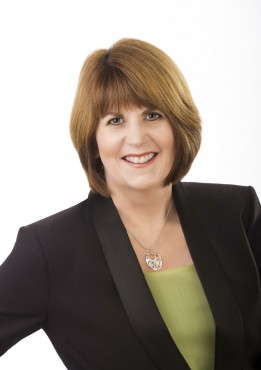After 34 years, newly retired CBC radio host Jo-Ann Roberts is taking off her journalist’s hat and turning her attention to politics. She now seeks a federal nomination for the Green Party, announced on Jan. 24 in Victoria with Elizabeth May by her side.
“I’m very passionate about what I’ve done for a long time, and I feel my reputation will stand the test of time—so it was a huge decision, not one that was not made lightly,” Roberts said.
Many years before her decade on CBC Radio One’s “All Points West,” Roberts developed a fascination for politics, completing her undergraduate degree in political science. She has stuck to a non-partisan point of view throughout her career, and is now transitioning to an “overtly political” role, she said. “The Green Party offers me the most post-partisan way to do it.”
Her early retirement from the CBC in December came from the desire to spark a discussion about public broadcasting and increasingly damaging cuts to the CBC, according to Roberts. “Those are things you can’t talk about when you’re an employee because it’s critical of your employer, and that’s not permitted.”
At first, both the Liberal and Green parties approached her. “It was extremely tempting to ally myself with a party that might form power—because power is attractive,” she said. “But for me, this was an election about principles, and believing in a new form of politics and conversation.”
Among these issues is the democratic deficit. Roberts argues that not having a fact-based approach to governing, not allowing scientists to speak, and the government’s restraint when responding to questions from the media all work towards a controlling message. These concerns go hand-in-hand with CBC’s future.
“It needs to maintain its arm’s length from government—that is eroding,” she said. In May 2012, the government announced $115 million of cuts for the next three years. Roberts wants to “stop the bleeding” and figure out what the public wants from the CBC in the future.
“There is a fear of offending the government,” she said. “It may not affect reporters on the ground, but it affects management.”
According to Roberts, the CBC president and eight of 10 directors are appointed by the Prime Minister and donors to the Conservative Party. “That should change. We should look at having a governance model that takes the politics out of appointing the directors of the CBC,” she said.
After years of investigating, interviewing, and learning, Roberts has become well-versed in the world of political issues. On a broader basis, she has a close eye on the national housing plan.
“We know that [affordable] housing is an issue, and it relates to poverty and homelessness issues,” she said. “We need a national housing strategy that puts in place incentives for building affordable housing but also putting subsidies in place.”
A national strategy to transition away from fossil fuels and pipelines is also on her mind. “This isn’t about demonizing the fossil fuel industry; this is about what do we do differently.” Canada wastes 50 per cent of energy used, an issue that could lead to retrofitting buildings and creating jobs, she said.
When it comes to job creation, Roberts sees the Temporary Foreign Workers Program as an example of Canada’s failure to “punch above our weight.”
“People have always had the opportunity, if they wanted it, to put [work] towards citizenship. Taking that away, I am very opposed to that,” she said.
Roberts believes that her skills as a researcher, investigator, and active listener will become tools for success in the political arena. She is open to hearing and understanding a community’s needs. She plans to end her campaign on a positive, engaged, and ethical note—“excited” being the key word in her life for the next few months.







